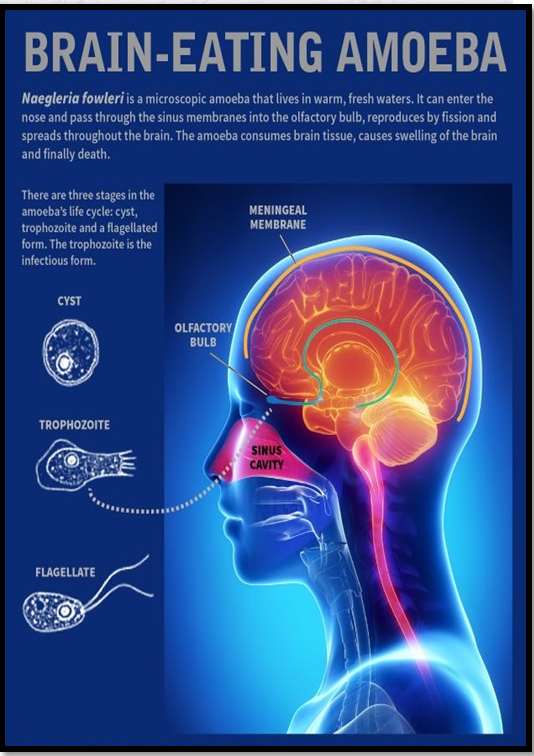RISE IN MENINGOENCEPHALITIS CASES IN KERALA
Why in the news?
- Two deaths in Kerala have been attributed to primary amoebic meningoencephalitis, with a 5-year-old from Malappuram and a 13-year-old from Kannur succumbing to the infection in May and June.
- An increase in cases is linked to unhygienic stagnant water and high temperatures
Source: Upscprep
What is primary amebic meningoencephalitis (pam)?
- Definition: A rare and deadly brain infection caused by Naegleria fowleri, also known as the “brain-eating amoeba.”
- Cause: Acute brain infection from a free-living amoeba ( Naegleria fowleri, the “brain-eating amoeba,”) found in warm freshwater and soil.
- Infection Mechanism: Contaminated water enters the nose, travels to the brain, and destroys brain tissue, causing severe swelling.
Contributing Factors
|




